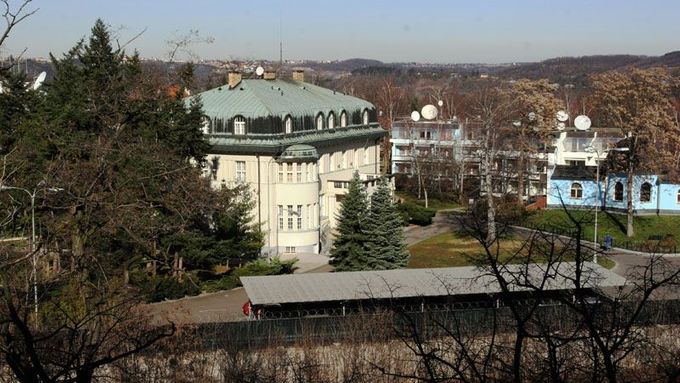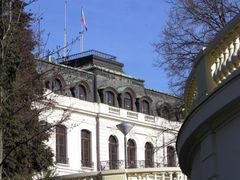
Prague - Legal dispute between the Popper family and Russian Federation, brought to attention by the online daily Aktuálně.cz, is spreading.
The Poppers have already filed a second lawsuit asking for their property to be returned.
Their villa and attached land were given to the Russian Federation (former Soviet Union) by President Edvard Beneš for diplomatic purposes.
Banker Jiří Popper and family had to leave their residence in haste to escape the Nazis and an almost certain death in a concentration camp.
Russia has been using the given house as an embassy since the end of the war.
Jiří Popper's daughter Lisbeth sued Russia for return of the house and land. She is currently also asking for the house furnishings to be returned. According to the charge, which Aktuálně.cz has at its disposal, the diplomats and Russian Embassy employees are using all the furnishings illegally.
"Items located in house number 473, do not belong to the sued party (the Russian Federation), and the party is thus using items that are the property of another person. The sued party has therefore taken possession of the items knowingly and deliberately at the expense of the rightful owner and has thus abused its position of power and continues to abuse this position," the charge against the Russian Federation stated.
"This mainly concerns a significant number of pieces of furniture, chandeliers and other house furnishings, mostly porcelain, silver, paintings, mirrors, sculptures, clocks," the document said.
Gestapo, Beneš and Soviets
President Beneš gave the Bubeneč villa to the Soviets right after the war, without informing the original owner. The Beneš Decrees mention a later compensation for seized property. The Poppers, however, never received any.
First, it was the Nazis who moved into the villa and turned it into the Prague Gestapo headquarters. Then the Soviets took it. Popper, the original owner, did not live to see any compensation. He died in the 1950s.
It is his daughter who is now asking for rectification through her lawyer Irena Beneš.
"President Dr. Edvard Beneš's decrees concerned property only, not the exceptionally valuable furnishing in buildings. It is therefore obvious that the president's action was rash, in conflict with the basic human rights and violating the basic principles of law," Benešová wrote in the charge.
Photographs, films and reportages
Benešová is aware that it will not be easy to prove that the Russians are using the property illegally.
She has to prove that the villa's furnishings belong to the original owners, the Poppers.
"The prosecutor is unable to provide the full list and description of the movable property since she has no access to the property in question," wrote Benešová in the charge.
She hopes the court will facilitate her access to the villa, so that the Poppers can mark the family property.
"We would like to identify the Popper family property according to their knowledge, as well as, period photographs and compare it with reality, which is also only mediated. There are, for example, photographs showing the Russian Ambassador welcoming Václav Klaus in the Embassy hall. The Poppers' property can be seen behind them clearly, Benešová said.
"If they claim that the items we identified are not the Poppers' property, let them prove when and where they bought the antique chandeliers, for example," Benešová said.
Benešová admitted in the charge that she might not be able to win all of the items for the family. She added that some might also have been stolen.
"There is reason to assume that the property of Jiří Popper might have been damaged and stolen by the Soviet army just like the US Ambassador's residence in Prague Bubeneč was after the World War II and the actions of the sued party do not offer any reason for the plaintiff to presume that the Soviet army behaved in a different way in connection to her family's property," Benešová wrote in the Poppers' charge.








